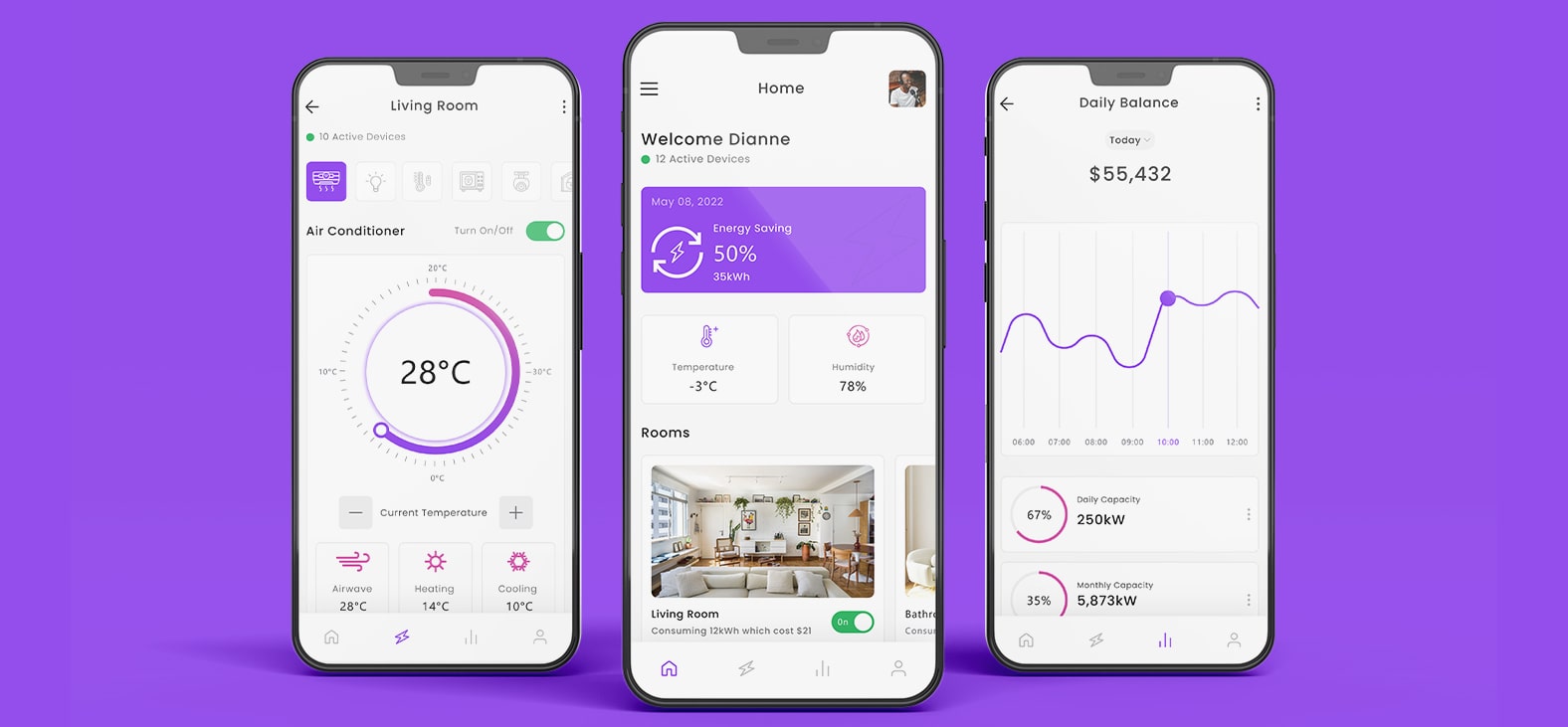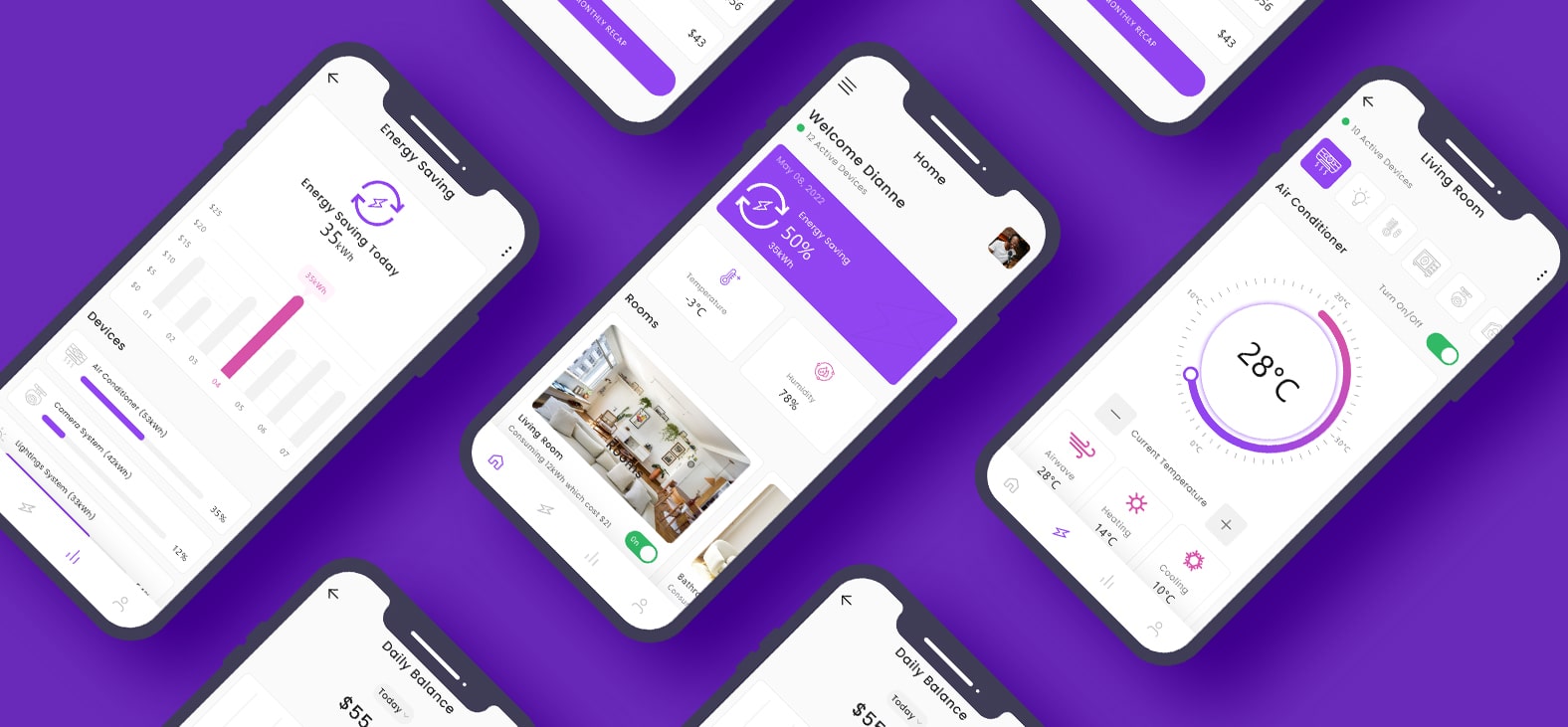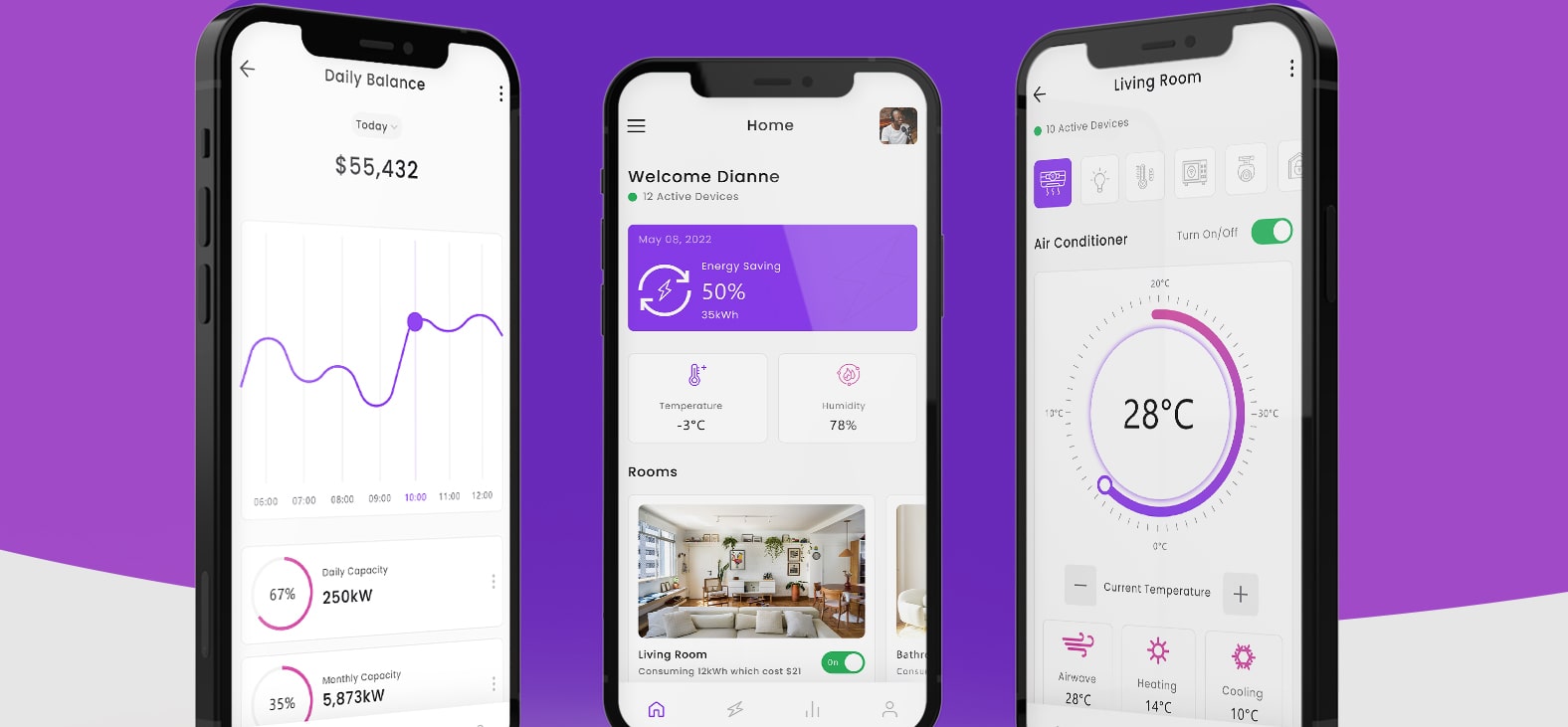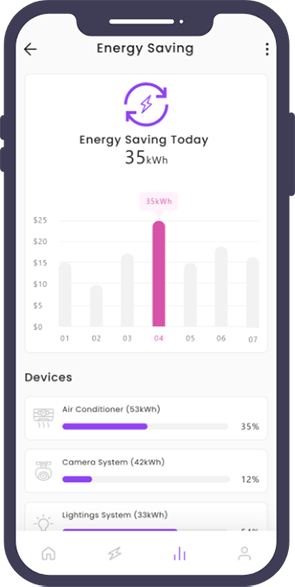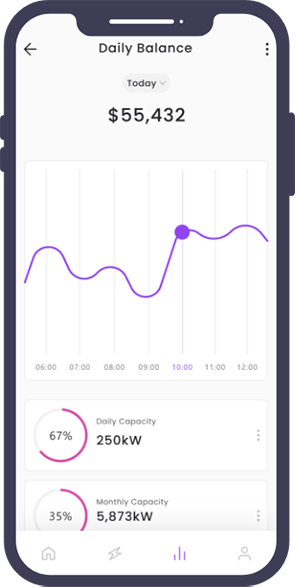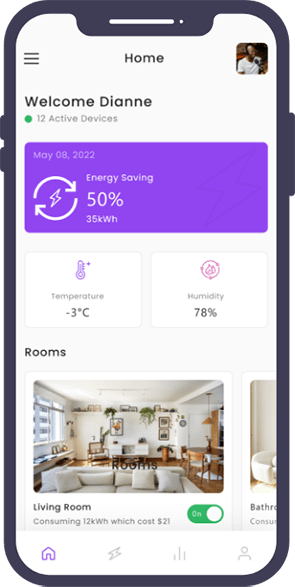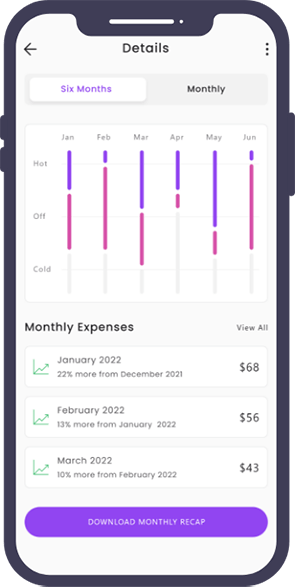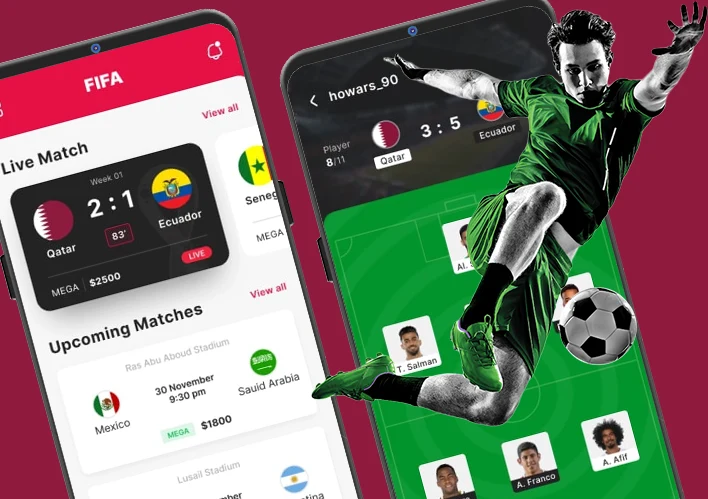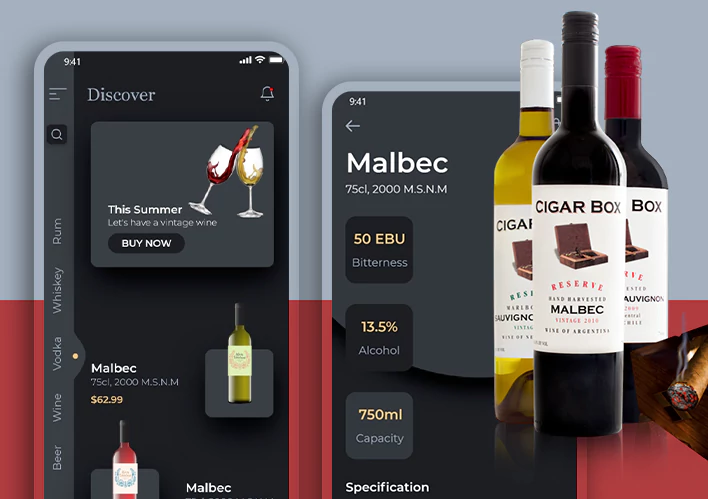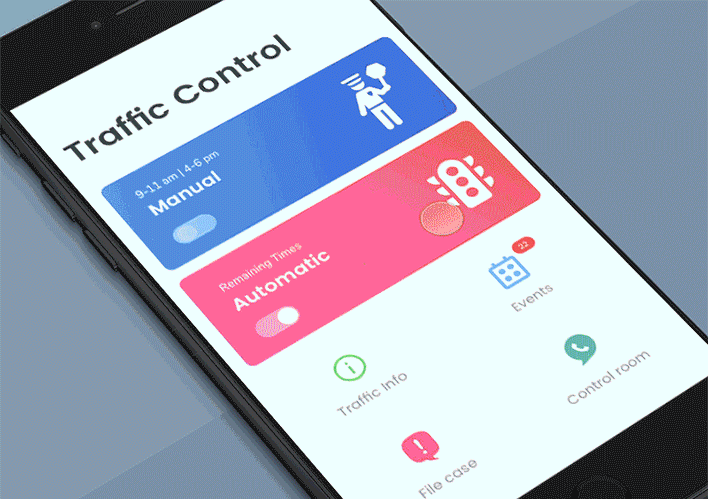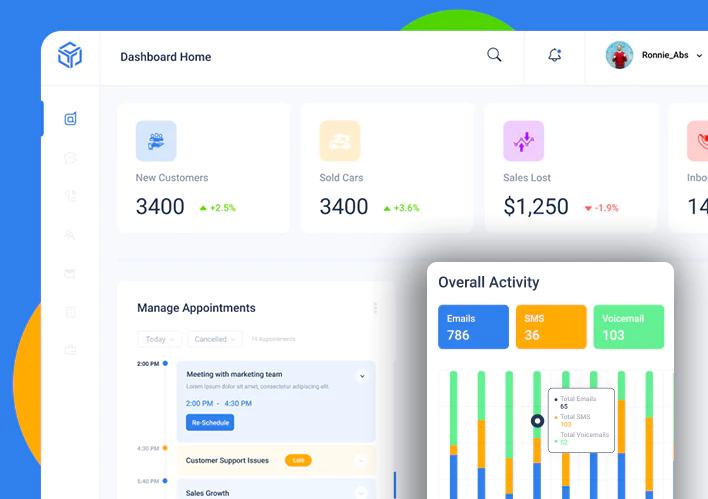Iot-Enabled Smart Home System
Our client is a leading home automation company that wanted to develop an IoT-enabled smart home system to provide customers with a modern and convenient way to control their home appliances and devices.
- Industry
- Lifestyle
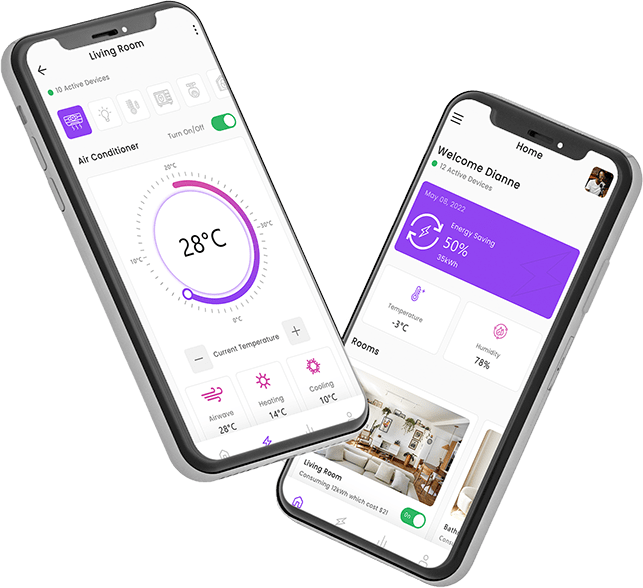
- BA (2)
- Project Manager (1)
- Developers (3)
- Designers (2)
- QA Testers (2)
Of unstoppable work
Smart multi-room system with IoT
Let’s Discuss Your Project
Get free consultation and let us know your project idea to trun it into an amazing digital product.
Challenges Faced to Develop Smart Home Using IoT
Device Integration
The smart home system needed to integrate with a large number of IoT devices from different manufacturers to provide customers with a comprehensive solution.
Security
The IoT-enabled smart home system needed to be secure to prevent unauthorized access to sensitive data and devices.
User Interface
The IoT home automation system needed to provide customers with an intuitive and user-friendly interface for controlling their devices.
Connectivity
The smart home automation system needed to have reliable and fast connectivity to ensure seamless communication between devices.
Scalability
The smart home control system needed to be scalable to accommodate an increasing number of devices and users as the business grew.
Power Management
The IoT-enabled smart home system needed to optimize power consumption of connected devices to reduce energy costs.
Proposed Solutions to Solve Challenges to Deveop IoT Home Automation System
Device Integration
We proposed to use a middleware platform that would act as a bridge between different IoT devices and the smart home system. This would enable the client to easily integrate with a large number of devices from different manufacturers.
Security
We proposed to use end-to-end encryption, multi-factor authentication, and role-based access control to ensure the security of the smart home system. We also recommended implementing regular security audits and updates to keep the system secure.
User Interface
We proposed to provide customers with an intuitive and user-friendly mobile app for controlling their devices. The app would have features such as device grouping, scheduling, and automation to enhance the user experience.
Connectivity
We proposed to use Wi-Fi, Bluetooth, and Zigbee protocols for reliable and fast connectivity between devices. We also recommended implementing a mesh network to ensure seamless communication between devices.
Scalability
We proposed to use cloud infrastructure, such as Amazon Web Services or Microsoft Azure, to ensure scalability and flexibility as the business grew. We also recommended implementing load balancing and auto-scaling to handle increasing traffic.
Power Management
We proposed to use smart energy management techniques, such as scheduling and automation, to optimize power consumption of connected devices. We also recommended implementing smart meters and sensors to monitor and analyze energy usage.
Key Features of IoT Smart Home System
Our Web App development and IoT Solutions professionals created this Smart Home to minimize human effort and improve living standards. Let’s have a look at its features.
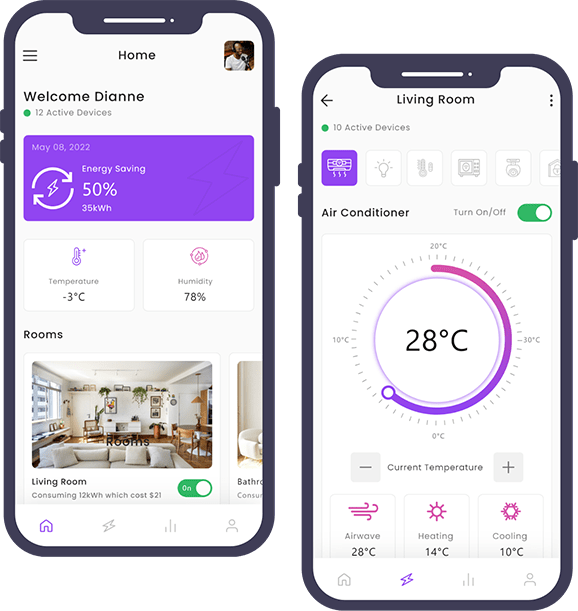
User App Features
- Sign Up/ Sign In: Signing up for smart home applications is secure and straightforward. During the procedure, the user will provide the option to configure all accessible authentication features.
- Institutive Device Screen: The Device Screen is a section of the app where users can view all the appliance’s information. Like the Home Screen feature, the data displayed on the screen depends on the specific use case. However, there is some general information that you can add to your screen.
- Onboarding Guide: The onboarding guide is step-by-step guidance on how to set up the device, connect it to an app, how it works in general, what features are available, and so on. The information available is well-structured and easy to understand.
- Push Notifications: Most smart home apps rely heavily on push alerts. You can utilize them for alarms such as system failures, fires, trespassing, and regular situations (for example, that the dish is ready).
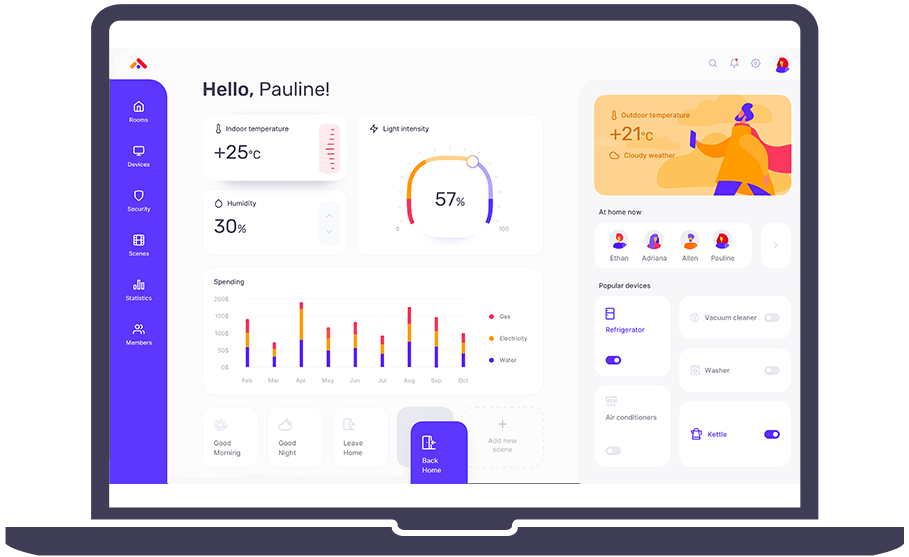
Admin Panel Features
- Easy performance tracking: The smart home has human characteristics, such as the ability to perceive and use speech, sight, touch, and even smell. The home may very much resemble its owner’s personality – and so distinguish itself from other homes – by utilizing qualities and characteristics that can develop as your home interacts with you.
- Home management insights: There’s certainly much to be said for your ability to gather data about how your house operates. Over time, you can track how often you watch TV, what kind of meals you make in your oven, and what items you store in your refrigerator. You may be able to assess your everyday routines and actions based on these insights and make changes to live the lifestyle you wish.
- Enhanced home security: In case of a fire, break-in, or other tragedy, the automated home’s advanced security goes far further. The best thing about an advanced home security system installed, as part of your home automation installation, is completely customized to your individual security requirements.
- Multiple devices supported: An advanced home network serves as the primary nervous system of your smart home, integrating the countless components of your automated system so that they operate together. This is the most important feature of a properly running smart home.
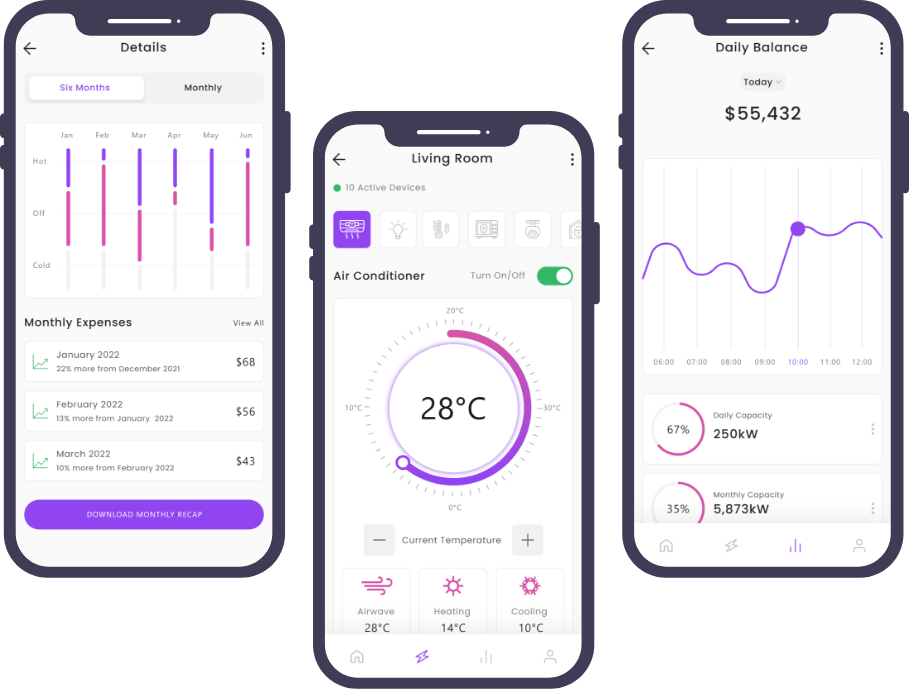
Advanced Features
- Voice Control
- Temperature setting
- Eco-mode
- Scheduling
- Night Vision
- Self-Monitoring
Let’s Discuss Your Project
Get free consultation and let us know your project idea to trun it into an amazing digital product.
IoT Home Automation – Milestone We Achieved
- 01
Requirement Gathering
First we sign the NDA with the client and after that we start gathering the relevant information for the app.
Duration15 to 20 daysTeam MembersBusiness Analyst and QA - 02
App Designing
Our designers now start designing different app screens and wireframes to give seamless user experiences with a flawless look.
Duration20 to 30 daysTeam MembersUI & UX Designers, BA - 03
App Development
By using the latest technologies and tools, our expert app developers develop interactive prototypes that attract user’s attention.
Duration40 to 50 daysTeam MembersExpert Developers, Designers, BA - 04
App Testing
In the final step, our QA team performs various analyses and validations to make sure that the app runs flawlessly.
Duration15 to 20 daysTeam MembersQA, Developers, BA, Project Manager
Synopsis
The IoT-enabled smart home system we developed for our client was a huge success. The middleware platform we implemented for device integration enabled the client to easily integrate with a large number of IoT devices from different manufacturers.
The end-to-end encryption, multi-factor authentication, and role-based access control ensured the security of the smart home system. The use of Wi-Fi, Bluetooth, and Zigbee protocols and the implementation of a mesh network ensured reliable and fast connectivity between devices. The smart energy management techniques we implemented optimized power consumption of connected devices, leading to reduced energy costs.
Overall, the IoT home automation system helped our client to provide a modern and convenient solution for their customers to control their home appliances and devices, leading to increased customer satisfaction and sales.
Work Gets More Appreciation Than Words
Let’s talk more about your plan. Get a free consultancy and no-binding quotation for your project.
